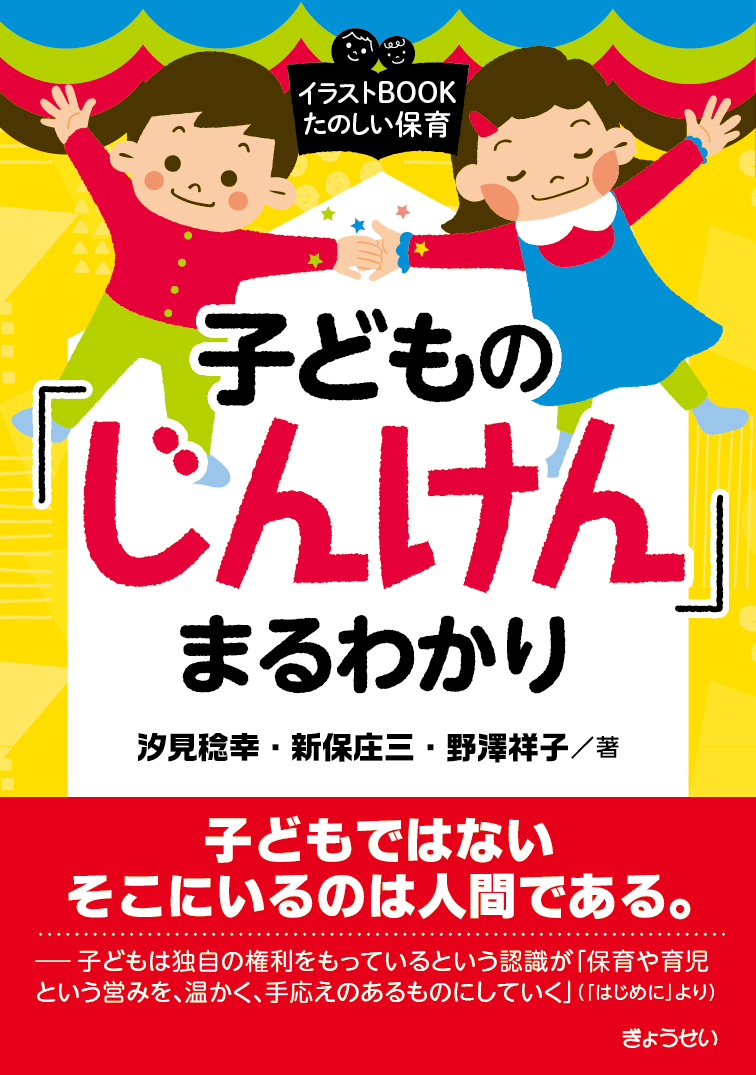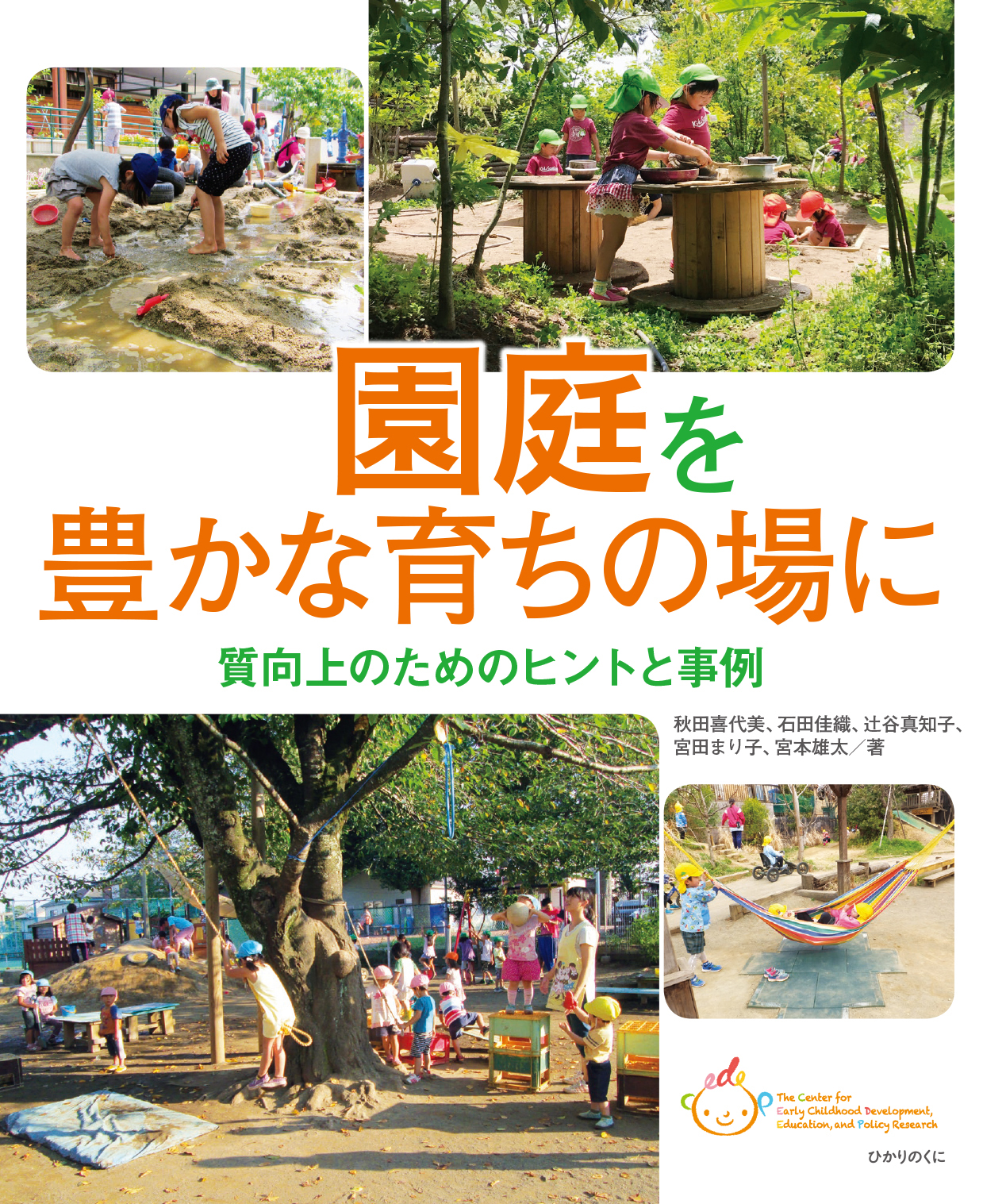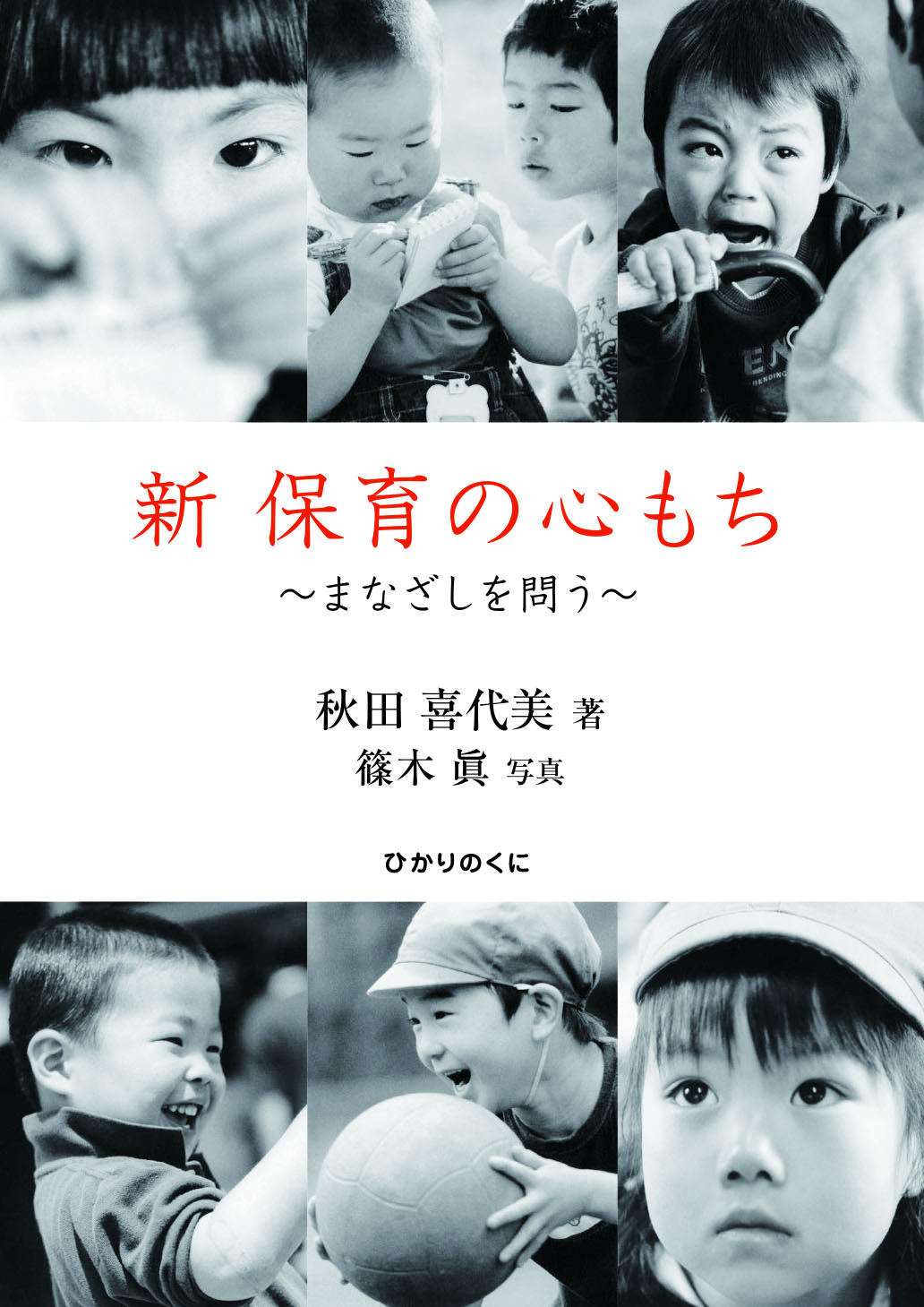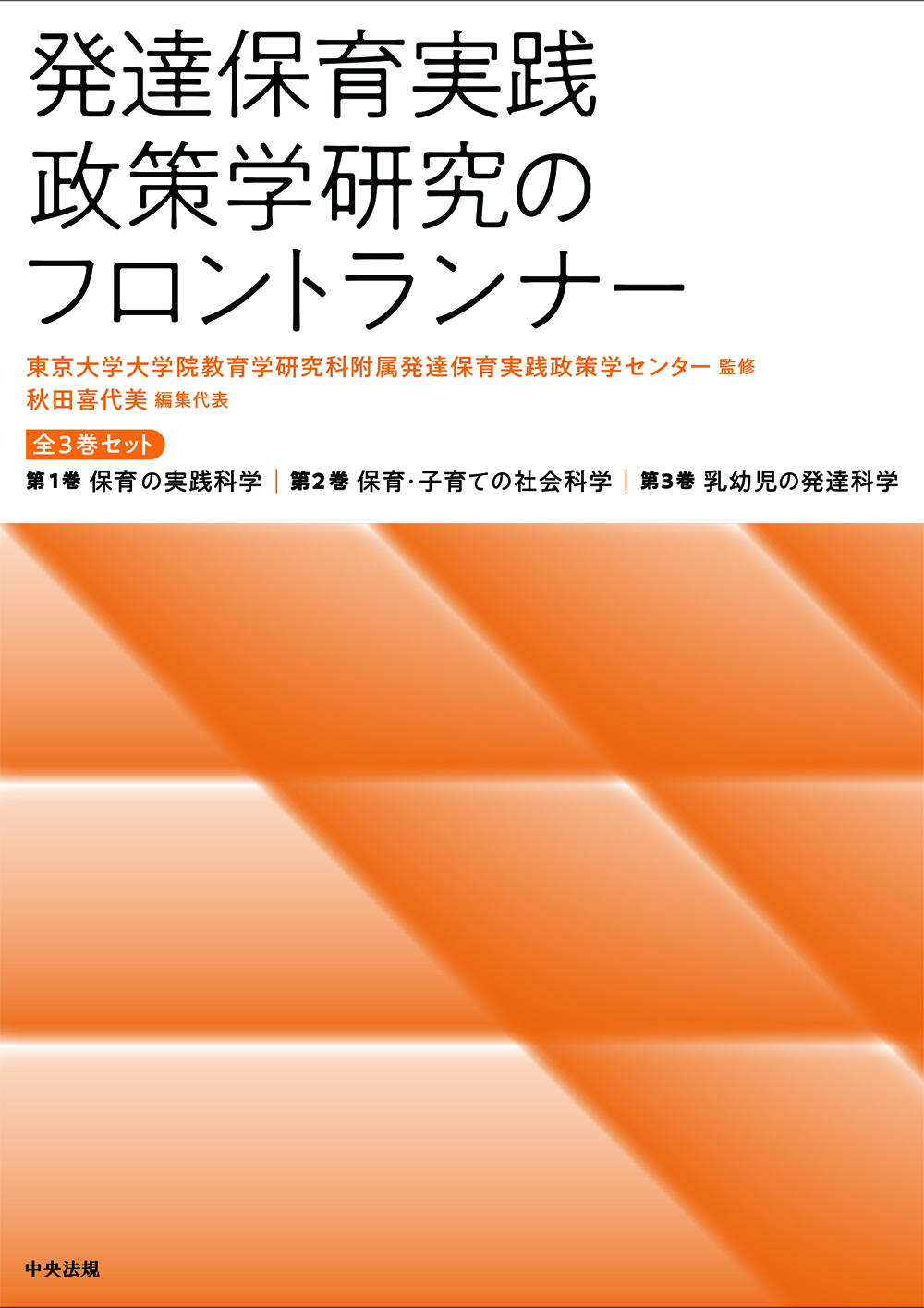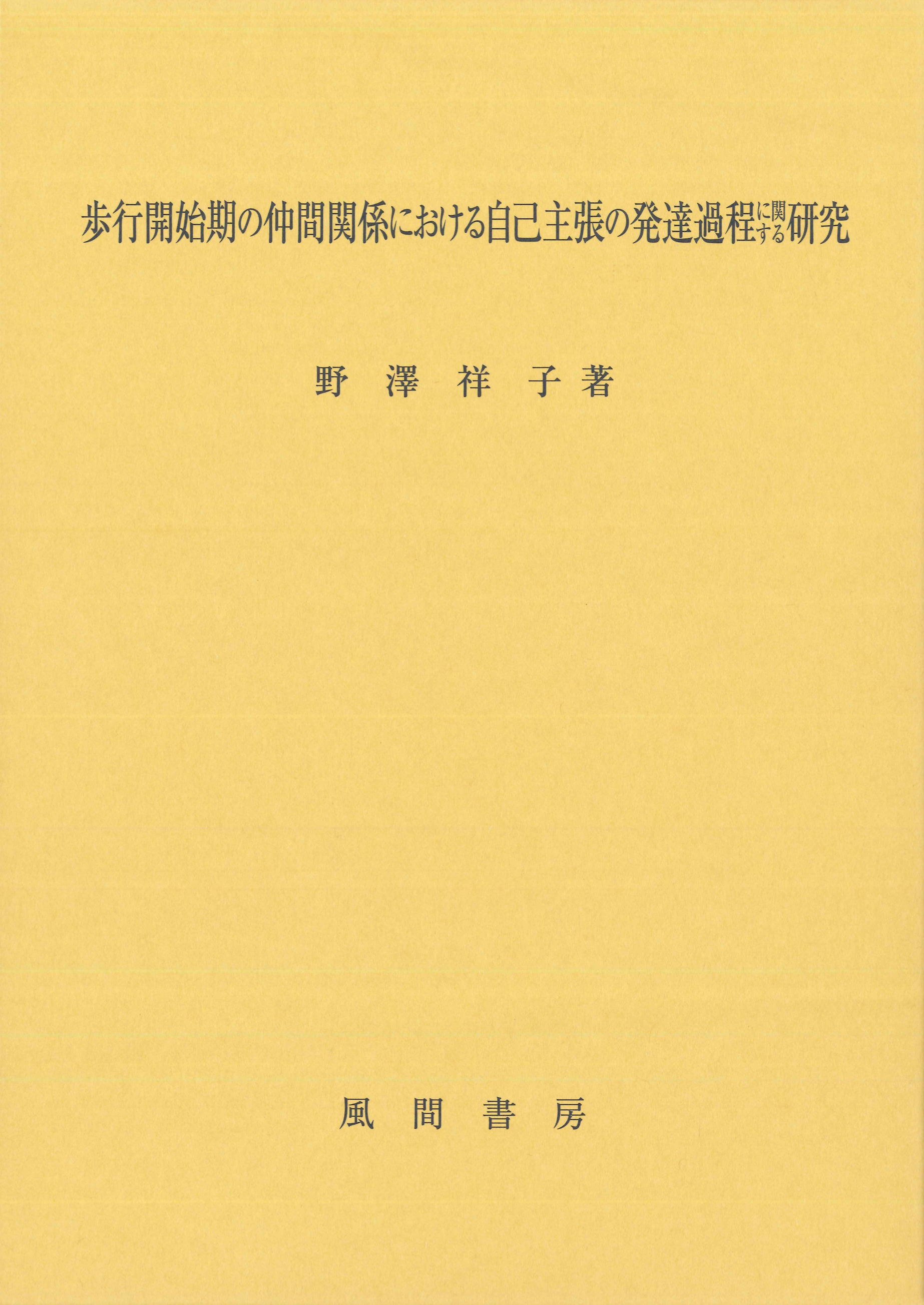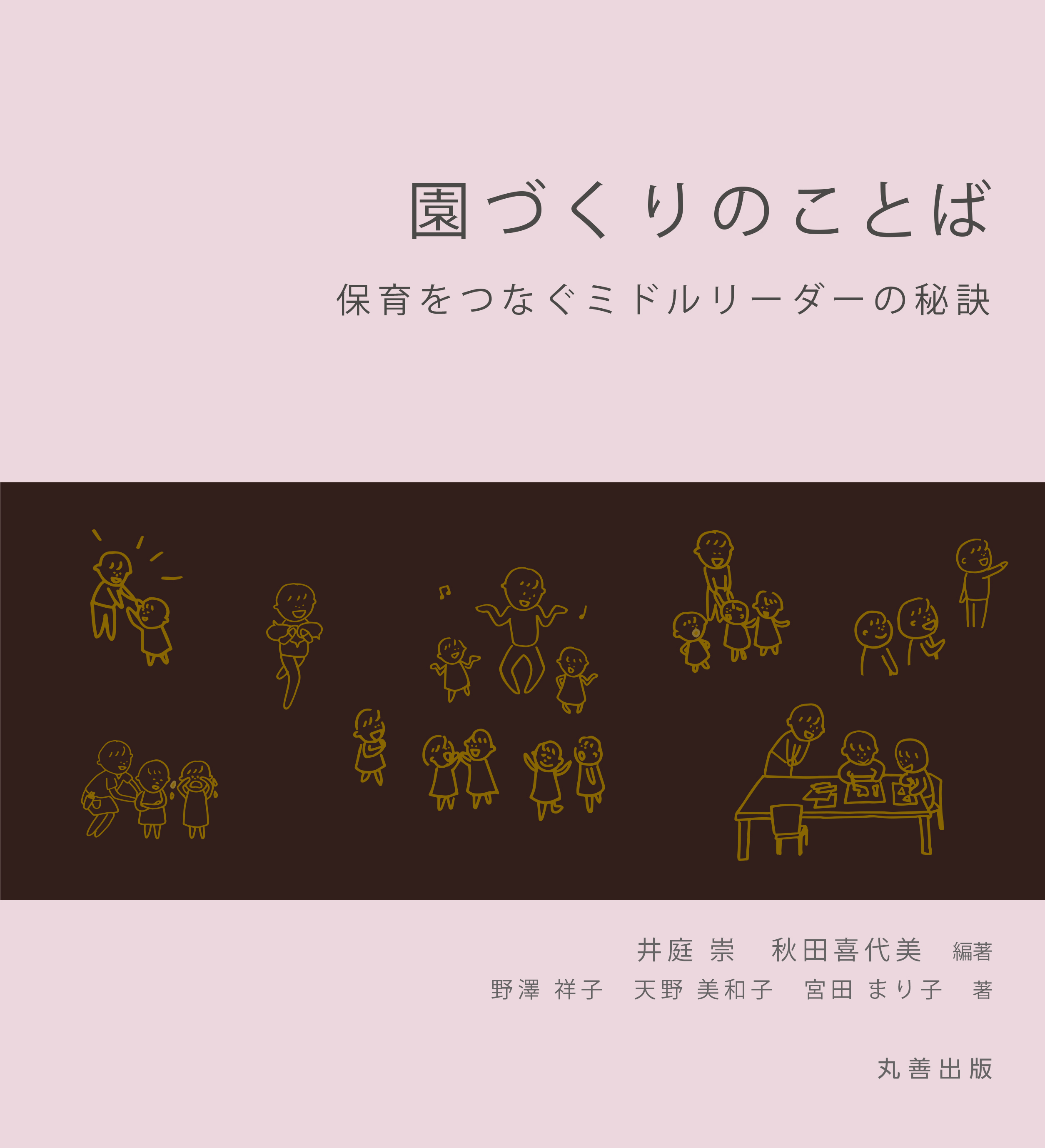
Title
En-zukuri no kotoba (The Words for Nurturing a Community - The practical wisdom for middle leaders in Preschools)
Size
120 pages, B5 format
Language
Japanese
Released
July, 2019
ISBN
978-4-621-30410-5
Published by
MARUZEN Publishing
Book Info
See Book Availability at Library
Japanese Page
This book is a result of the “Pattern Language” research project conducted jointly by the Center for Early Childhood Development, Education, and Policy Research (affiliated with the Graduate School of Education at the University of Tokyo) and the Creative Media Lab, headed by Professor Takashi Iba at Keio University. Researchers examined the practical knowledge of middle leaders in early childhood education and care.
The importance of preschools, such as kindergartens, daycare centers, and kodomoen (unified early childhood education and care centers), has come under renewed focus as places supporting childhood development and childrearing. At preschools, daily life activities are created through the interactions of various actors, including staff members, children, parents, community members, and local governments supporting the preschools. Key persons in these interactions are middle leaders, such as head teachers and vice principals. Middle leaders support principals and facility directors and are responsible for training new preschool educators, while creating connections between people in a variety of positions and forming the environment and culture of their preschools. However, the actual work carried out by middle leaders are difficult to discern from the outside, leading one preschool middle leader to describe her own role as a “kuroko” (a stagehand in Kabuki, clad in black to indicate they are to be considered invisible by the audience). Middle leaders say that it is difficult to describe and share about their work in words.
An effective method to visualize practical knowledge that is difficult to perceive and share is to use pattern language, being researched by Professor Iba. With pattern language, common “patterns” repeatedly observed in best practices and in skilled workers are extracted and converted into a “language.” This approach is attracting attention and being applied in a wide range of fields such as education, medicine, welfare, disaster prevention, government policy and so on.
En-zukuri no kotoba (The Language for Creating Preschools) collects 27 practical knowledge secrets from middle leaders in preschools, based on interviews with 25 head teachers and vice principals. Extracted phrases include “guide for reflection”, “foresighted advice”, “uniting translator”, “voice scooping”, “creative stock”, and ”attractive case-study.” These words indicate important points in how middle leaders carry out their work. Besides illustrations, for each term the book describes problems faced in certain situations, their solutions, and results. The book’s strength is that, unlike an overly specific manual, it is written with a suitable level of abstraction so that readers can reflect on their own situations and consider their own solutions and ways to discuss them with others. In actual training using this book, participants commented that they were able to rediscover the significance and appeal of their own work, and that it became easier to share experiences with one another thanks to a common perspective. These remarks suggest that the book can serve as a tool to support in-depth learning by preschool educators. En-zukuri no kotoba card is also available separately in a card-pack format.
This book is the result of the first attempt to apply pattern language research to the field of early childhood education and care. Besides describing practical knowledge, pattern language is a new research approach that seeks to connect knowledge to practice by creating bodies of knowledge that can be easily applied to dialogues and professional development.
(Written by AKITA Kiyomi, Professor, and NOZAWA Sachiko, Associate Professor, Graduate School of Education / 2021)
Related Info
http://www.cedep.p.u-tokyo.ac.jp/en/projects/pattern-language-project-in-ecec



 Find a book
Find a book


 eBook
eBook